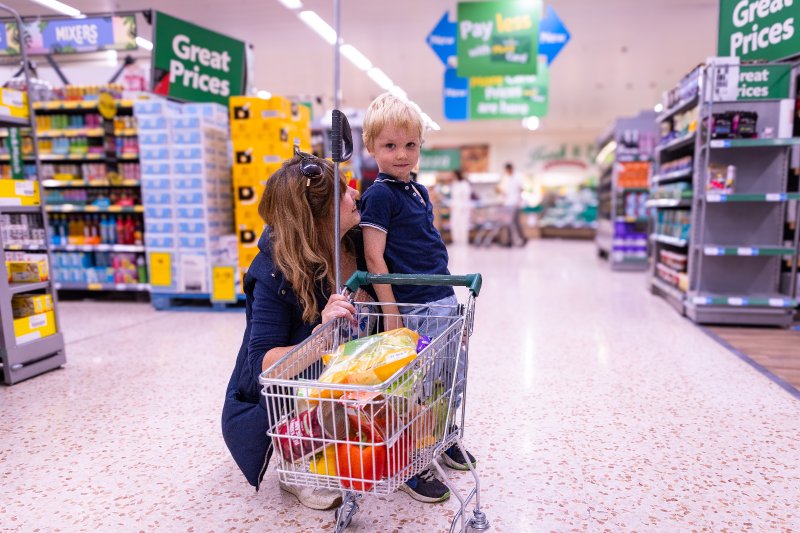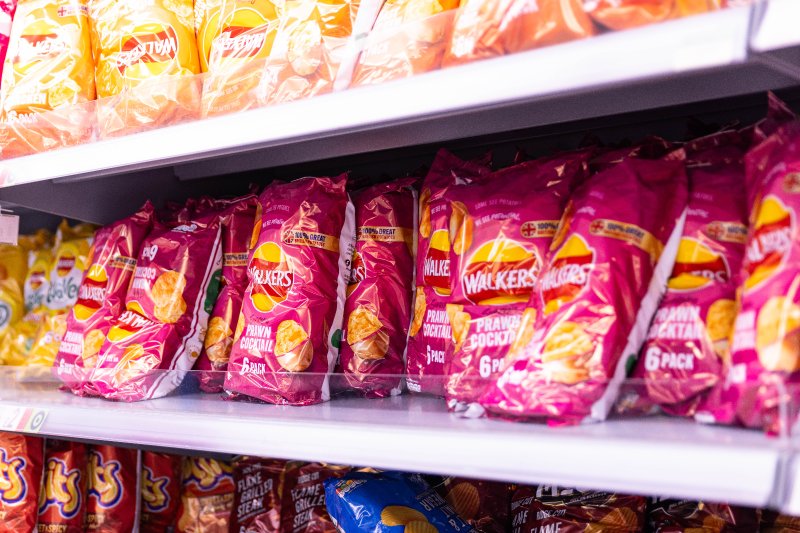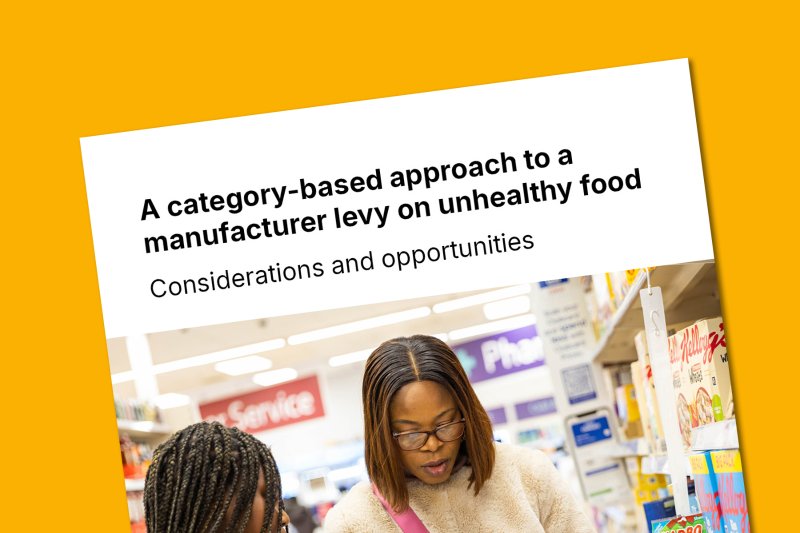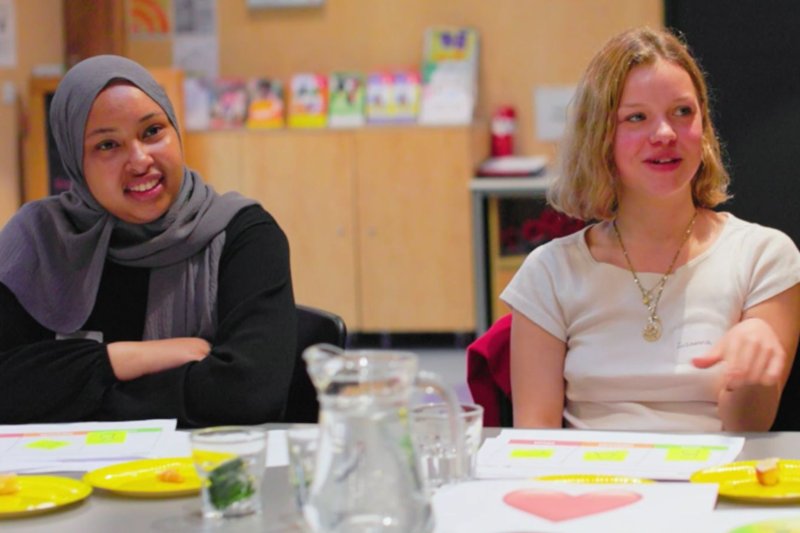Blog
Six Recipe for Change takeaways from party conferences
The Recipe for Change campaign partnered with Diabetes UK at Labour and Conservative conferences with two panels exploring the future of children’s health and what role of the Government and the food industry should play. Children’s Food Campaign co-ordinator Kate Howard reports on the lively debate.
Across two panels, we heard from 10 speakers from a range of political backgrounds, yet we saw plenty of agreement concerning the issues at play in children’s dietary health, the causes of them, and lots of overlap in how we might deal with them.
Our fantastic panels of policymakers, health experts and campaigners included Andrew Gwynne MP (Minister for Public Health and Prevention), Sonia Kumar MP, Dr Ben Spencer MP (Shadow Minister for Mental Health, Prevention and Public Health), and were expertly chaired by Chris Smyth and Rachel Sylvester, both editors at The Times. For the full line up, see here.
So what did we learn?
1. What surrounds us, shapes us
For those of you who are familiar with our campaign, you know we’re big on emphasising that it’s the places in which we live, work and play that shape our health, and we were very encouraged to hear our speakers, across both panels, saying exactly this too.
Andrew Gwynne MP is clearly taking his new role as Minister for Public Health and Prevention seriously as he spoke about the need to embed prevention across the new Government missions, while also specifically saying we have to ‘look at ways in which the food we chew is healthier’ and calling out the way that child-appealing packaging specifically targets children with foods that are overloaded with sugar and salt.
Dr Ben Spencer MP spoke of his own personal experiences as a child and how this has impacted his understanding of the way the food environment shapes our health as we grow up. He acknowledged that healthy food is often more expensive and less convenient than unhealthy food, and emphasised that any interventions to improve dietary health should include improving access to healthy foods for everyone.
Colette Marshall, CEO of Diabetes UK, also shared that if someone is pre-disposed to type 2 diabetes, then putting them in an environment where they are surrounded by unhealthy food options means they are significantly more likely to develop the condition. Not only that but we are seeing an increasing number of people in the UK developing type 2 diabetes, and worryingly, this is shifting to an ever-younger demographic.
2. Support for more industry regulation is a popular stance
Recipe for Change is already a coalition of 46 health organisations, Royal Medical Colleges and food campaigners who are calling for a new industry levy building on the success of SDIL, and we’re not alone. Chris Smyth and Rachel Sylvester from The Times chaired our Conservative and Labour panels and brought insights from their recent Times Health Commission report. This laid out ten recommendations to 'save the NHS', including one focussed on prevention of dietary ill health and obesity. This calls for:
- Expanding the sugary drinks tax, and also taxing high salt
- Implementing a pre-watershed ban on junk food advertising
- Reducing cartoons on packaging to minimise children's exposure to unhealthy food
Add to this, a report led by Lord Filkin and released earlier this year, which sets out an early action plan on improving health in England, and specifically supports the calls of the Recipe for Change campaign. Following the recent Lord Darzi review into the state of the NHS, a cross-party health and prosperity commission held by the Institute of Public Policy Research (IPPR) also urged the Government to implement new measures to improve the nation's health, including ‘polluter pays’ taxes on junk food.
The number of experts calling for greater industry regulation is only increasing and it’s time the Government listened.
3. The public back a new levy, too
Not only are those working in this space calling for tighter regulation, but the public support this too. Anna Taylor and Hannah Brinsden of the Food Foundation shared polling insight showing 68% of the public support an expansion of the sugar tax to more products, particularly if any money raised supports children’s health and access to good food.
On this important latter point, we’ve developed a new tool where you can explore what Government could invest in, if it were to raise up to £3 billion from expanding food and drink levies. We’ve gathered costings for all sorts of healthy food programmes and have created this Recipe for Change menu of spending options. Have a look at all the things that could potentially be funded and create your own menu.
We also have new polling coming out shortly showing how much faith the public has in the honesty of the food industry when it comes to what’s in our food, and whether companies will improve their products without government intervention – watch this space.
4. Food industry leaders need a level playing field
It’s not just health experts, charities, think tanks and the public who support regulation: many leading retailers and a growing number of food and drinks companies are increasingly backing smart regulation. We were delighted to have Oonagh Turnbull from Tesco on our Labour panel who said, ‘We couldn’t agree more with the need for a level playing field across the whole sector’ to bring about much needed change. They welcomed legislation restricting the promotion of HFSS (high fat, salt and sugar) foods in certain retail locations and said that more needed to be done to build on this. When asked if this included an expanded sugar tax, Oonagh welcomed this option, provided it was backed in evidence.
Matthias Lomas, Engagement Director for Investment at Guys and St Thomas’ Foundation, also emphasised that voluntary measures, such as the existing salt and sugar reformulation programmes, or those designed to improve food data simply aren’t effective enough when compared to mandatory measures.
This wider support for a level playing field across industry is seen by previous statement from businesses who also want greater clarity from Government to support them providing better food to young people.
5. Political arguments should not get in the way of public health
“It’s incumbent on policymakers to make sure we don’t drag ourselves into spaces that prevent what we all want: to lead healthier lives”.
Johnny Luk, Head of Public Affairs at Cast from Clay, hit the nail on the head on our Conservative panel. Improving the health of the nation should not be a political debate. A healthy nation should make sense from any political standpoint whether you’re more focused on the right of people to lead healthy lives, or on having a productive workforce, it’s a no brainer.
We welcomed Dr Ben Spencer MP’s takedown of the idea of the nanny state in this context: while he’s a big believer in personal choice, he said, you need to be able to exercise that choice in the first place. Food companies who work hard to sell and promote unhealthy products to us create an illusion of choice, and need to be regulated if we want choice to be a reality.
6. No single policy is a silver bullet for improving health
Across both panels, we heard all our panellists say that a new levy, or any piece of regulation, is not a silver bullet for health and must be done in conjunction with other policies. All three politicians, Andrew Gwynne, Sonia Kumar and Ben Spencer, acknowledged that food-related ill health overlaps significantly with poverty, and any policies should be part of a cross-departmental strategy which not only uses multiple levers to improve our health from industry levies, to greater transparency from businesses and restrictions on advertising but that these policies should also sit within a framework which also looks at the wider drivers of poverty too.
We were certainly buoyed by the depth of conversation from our panellists, and the audience who joined us, and look forward to continuing this conversation in our efforts to raise the healthiest generation of children in our history.
Kate joined Sustain in June 2023, and coordinates the Recipe for Change campaign, as part of the wider Children’s Food Campaign. Recipe for Change is calling on the Government to introduce new industry levies to help make our food and drink healthier, building on the success of the Soft Drinks Industry Levy.
Kate Howard
Campaign Coordinator
Children's Food Campaign
Published 3 Oct 2024















